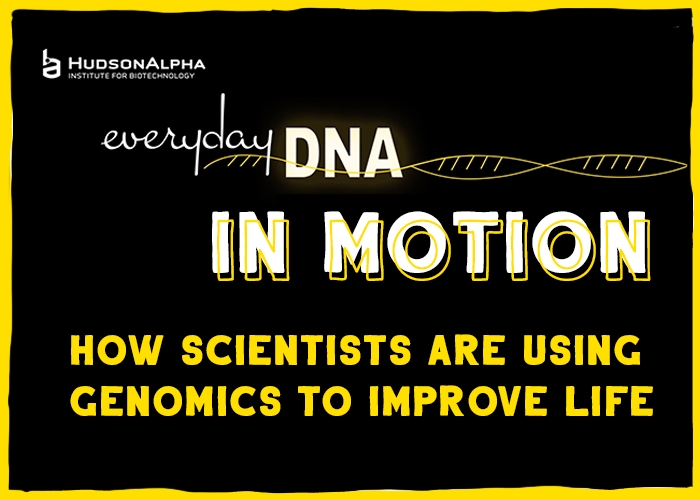By: Cathy Yarbrough, contributing science writer
Jian Han, MD, PhD, envisions a future when medical check-ups will include a test to determine your health index – a measure of your immune system’s readiness to ward off invading viruses. Han described his ideas at the HudsonAlpha Institute for Biotechnology’s 2015 Immunogenomics conference, held in late September in Huntsville, Ala.
A health index based on the strength of the immune system will enable doctors to diagnose normal health as well as disease, said Han, who is a faculty investigator at HudsonAlpha. “The U.S. health care system is often criticized as overly focused on disease management. But the system cannot emphasize health and disease prevention without a test to diagnose normal,” he said. If such a test were available, patients consistently diagnosed as normal could be rewarded for their healthy lifestyle. “Doctors also could be rewarded for doing a good job,” he added.
Through the novel HudsonAlpha Repertoire 10,000 or R10K project, Han hopes to develop a simple, low-cost and accurate method to determine a patient’s health index. The test would compile and analyze DNA profiles of an individual’s B cells and T cells, the immune cells that patrol the body in search of microbial invaders as well as abnormal cells and other threats. The immune system tailors its response to these threats based on information gathered by the B and T cells.
Because the immune system keeps a record of its encounters, periodic check-ups of a patient’s T and B cells also could be a way for physicians to detect the earliest stages of disease development, said Han. “The immune system knows when something goes wrong with the body,” he explained. “It diagnoses the problem and tries to treat it. It’s more sensitive than any test we could invent.”
In addition to creating the health index test, the R10K project team plans to identify and analyze the DNA profiles of the T and B cells of 10,000 people in the U.S., Europe and Asia who have been diagnosed with one of the 100 diseases targeted by the project. They range from autoimmune diseases and inflammatory disorders to infectious diseases and cancers.
“By studying the immunorepertoire of each disorder, we hope to uncover possible disease mechanisms, identify new biomarkers and develop new therapeutics,” Han said.
So far, the R10K project has revealed that a healthy or normal individual’s immune system contains a very diverse collection of B and T cells. “Their immune systems are ready to fight off disease, even cancer,” he said. In patients with disease, these immune cells are much less varied because “they have been fighting a war.”
R10K scientists also have determined that everyone shares about three percent of T cell receptors (TCRs). TCRs are the components of T cells that interact with the antigens that distinguish microbial and cancer cells. Antigens are located on a cell’s surface. “If each individual in the world has these TCRs, they must be essential to life,” said Han.
At the Immunogenomics conference, Han reported that R10K DNA immune system studies of the first 1,000 people in the project revealed that 81 percent of each person’s TCRs are private, not shared with any other individual. No more than three other people worldwide share about 12 percent of an individual’s TCRs, and seven percent of TCRs can be found in only 4 to 100 people in the human population. “Just 1.1 percent are highly shared,” he said. Thus far, RI0K researchers have identified 75 million unique TCRs.
The detailed immunological profiles that will result from R10K will be publicly available and will not be patented by HudsonAlpha, the private companies co-sponsoring the project, Han or his research collaborators. “The immune repertoire libraries will be totally free to the research community as a resource they can build on,” Han said.
HudsonAlpha will host the 4th Immunogenomics conference Sept. 26-28, 2016.



